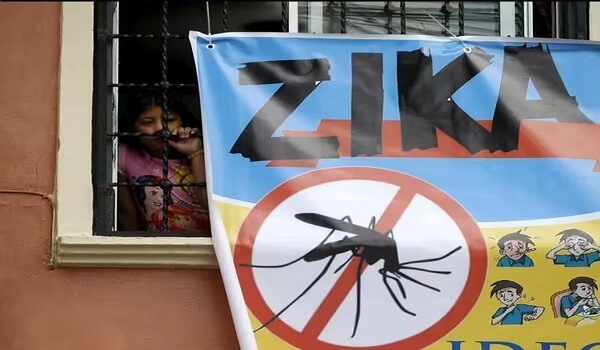Recently, the Karnataka State Health Department issued an alert following Zika virus detection in mosquito samples from Talakayalabetta, Chikkaballapura village.The Zika virus, a mosquito-borne flavivirus, and its impacts on public health have been a matter of significant concern.
Zika Virus
- The Zika virus, a mosquito-borne flavivirus, that is primarily spread by Aedes mosquitoes, particularly Aedes aegypti.
- Also, it can also be transmitted from mother to fetus during pregnancy, as well as through sexual contact, transfusion of blood and blood products.
- The Zika virus has an RNA genome, and thus a very high potential to accumulate mutations.
Genomic studies have suggested that the Zika virus has two lineages: African and Asian
- Discovered in 1947 in the Zika forest in Uganda from infected monkeys, the first human cases were recorded in 1952 in Uganda and Tanzania.
- Outbreaks have occurred across Africa, the Americas, Asia, and the Pacific since 2007.
- Notable outbreaks have occurred in Indian states like Kerala and Karnataka in recent years.
- Symptoms: Often asymptomatic; when present, common symptoms include fever, joint pain, muscle pain, and headache lasting 2-7 days.
- Association with Other Conditions: Linked with Guillain-Barre syndrome, neuropathy, and myelitis in adults and children.
- Also, the interaction between Zika and dengue viruses significantly impacts disease severity.
- Exposure to one can worsen the impact of the other, posing challenges in vaccine development and public health management.
- Complications: Infection during pregnancy causes congenital malformations, such as microcephaly and other associated conditions.

